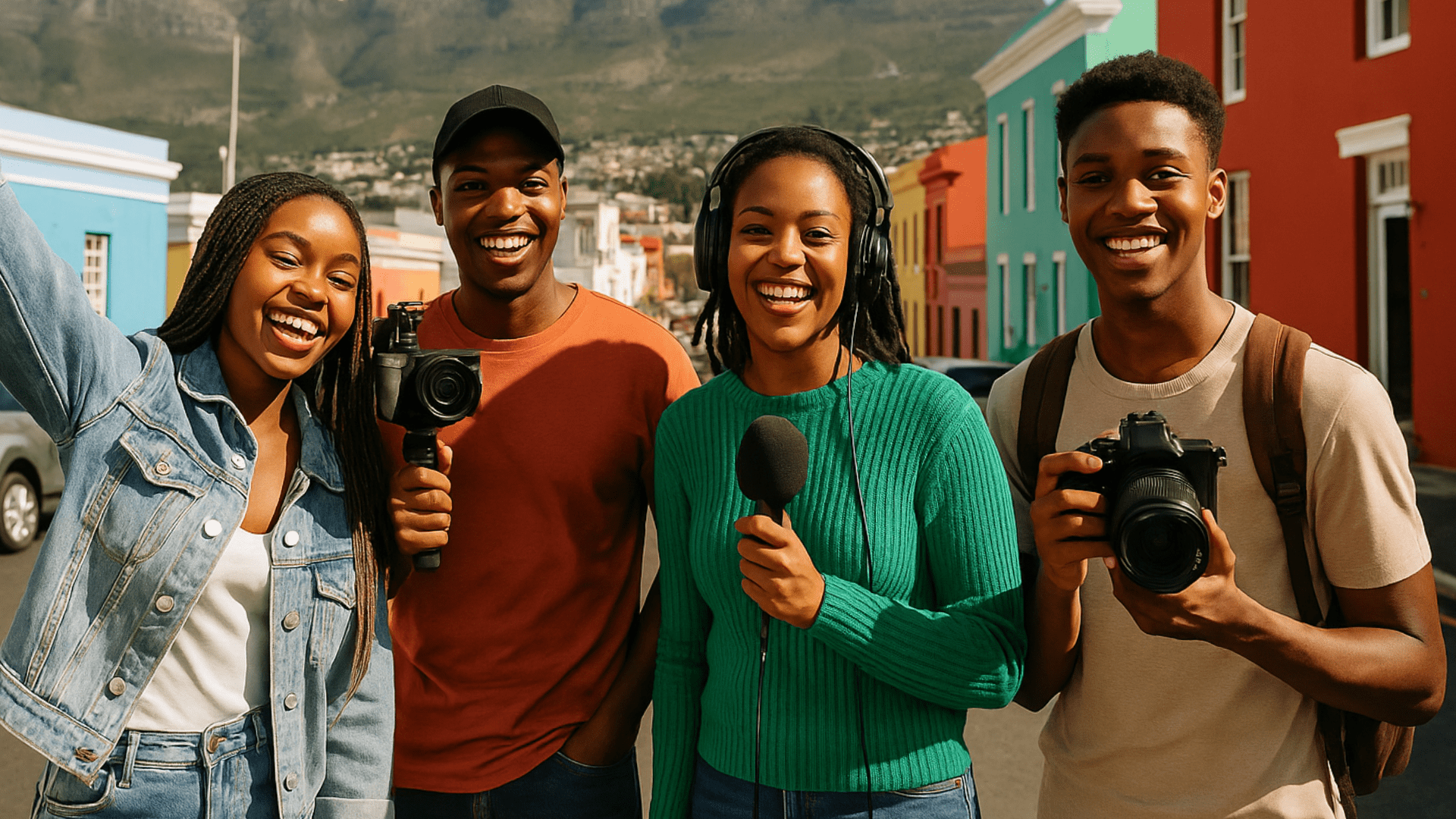
From a modest home studio in Nairobi, 23-year-old Amina edits her latest TikTok reel. Her
lighting is perfectly balanced, her voice crystal clear, her message powerful. Within hours, the
video trends — not just in Kenya, but in Canada, the UK, and Brazil. Amina is part of a growing
creative uprising — a generation of African content creators who are reshaping the continent’s
image, asserting global influence, and proving that creative brilliance needs no permission.
Africa’s creator economy is no longer a footnote in global discourse; it’s a seismic shift in
motion.
Key Stats & Growth Trends:
- Over 7.5 million active content creators across Africa are leveraging platforms like
YouTube, TikTok, Instagram, and Snap to reach local and global audiences (source:
Africa Creator Economy Report 2024, Disrupt Africa). - Nollywood produces over 2,500 films annually, making Nigeria’s film industry the second largest globally by volume, after India. In 2024 alone, Nigerian content made up 20% of African titles on Netflix and Showmax combined.
- South Africa is leading Africa’s livestream gaming sector, with platforms like Twitch and YouTube Gaming seeing a 35% YoY growth in local content. In 2025, esports sponsorships in the country exceeded $12 million, according to PwC South Africa’s Media Outlook.
- Ghana’s TikTok influencers, particularly in dance and fashion, dominate regional trend charts, with creators like Jackline Mensah and Wesley Kesse achieving millions of views per month.
Global Brands Are Taking Notice:
- Google’s “#YouTube Black Voices Fund” has invested millions in African creators since 2021, expanding to support over 130 creators across Nigeria, Kenya, and South Africa by mid-2025.
- Meta’s “Creators of Tomorrow” initiative featured more than 50 African creators in its 2024 rollout, with training programs and studio support hubs launched in Lagos and Johannesburg.
- TikTok’s Africa Creator Hub, launched in 2023, now supports over 1,000 creators annually, offering training, funding, and visibility support.
“Africa is not just a content consumer; it’s a creative engine with global impact,” says Emeka Okoye, a digital media strategist based in Lagos.
But the rise is not without friction. For every Amina, there are thousands held back by systemic barriers.
Challenges Facing African Creators:
- Infrastructure Gaps: According to the GSMA, only 28% of Sub-Saharan Africans had access to mobile internet as of 2024, while data costs remain among the highest globally, up to 4% of monthly income in some regions (ITU).
- Unequal Monetisation: Creators in African countries often earn 30–70% less per 1,000 views compared to counterparts in the U.S. or Europe, due to lower ad rates and regional CPM disparities (Source: Socialblade Analytics, 2025).
- Algorithmic Bias: Studies by Mozilla and Algorithm Watch in 2024 found that African creators’ content is underrepresented in global feeds due to algorithmic filters optimized for Western viewing patterns.
- Funding & Commercialisation Gaps: Less than 15% of African creators have access to brand deals or investor capital, according to a 2024 report by the African Digital Media Institute.
Despite these constraints, creators adapt — filming with smartphones, using free editing apps
like CapCut and InShot, and monetizing through live events, online workshops, branded
merchandise, and Patreon-style memberships.
A growing segment of the African creator movement is faith-driven — producing content that
blends storytelling, spirituality, and cultural relevance.
From Kenya’s gospel rap stars to Nigeria’s online evangelists, Christian creators now dominate
trending charts. In Ghana, digital ministries like The IYES Movement are amassing millions of
followers. Faith-based podcasts and video series are fueling positive influence among Africa’s
youth, who make up 60% of the continent’s population under 25.
The upcoming Faith Nexus 2025 Summit, scheduled for November in South Africa’s capital,
Pretoria, marks a historic turning point. Billed as the first global Christian creator conference in
Africa, the event is built around the “Seven Pillars of Influence”: Faith, Media, Technology,
Governance, Economy, Education, and Arts & Culture. Organizers expect over 5,000 creators
from 40+ countries, with sessions focused on digital evangelism, monetising values-based
content, and using tech tools for mission-led storytelling.
Africa stands at a creative crossroads — an emerging global leader with unmatched cultural
capital yet still playing catch-up in infrastructure and distribution.
Africa’s Strengths:
- Unparalleled cultural diversity: Over 3,000 ethnic groups and 2,000 languages provide endless storytelling perspectives.
- Tech-savvy youth base: Africa has the world’s youngest median age (19.7) and is expected to have one-third of global youth by 2050.
- Original formats: From Kenyan spoken-word dramas to South African comedy skits, African creators are inventing new digital genres.
Areas Needing Acceleration:
- Advanced production facilities: Outside of South Africa and Nigeria, access to studios and equipment remains limited.
- Distribution infrastructure: Global platforms often silo African content into regional niches, limiting global crossover.
- Capital and sponsorship access: African creators receive less than 3% of global creator economy investments, according to the Creator Economy Africa Index (2025).
Compared with Asia’s K-drama and anime boom, or Latin America’s music export explosion,
Africa’s creative leap is overdue, not impossible.
By 2030, Africa’s creative economy could triple in value to over $100 billion, according to
UNESCO and the African Development Bank. More than 20 million jobs could be generated
across content creation, tech, media, and adjacent industries.
What’s Next:
- AI & Tech Integration: Tools like Sora (OpenAI), Runway, and ElevenLabs are opening doors to low-cost, high-impact storytelling, enabling creators to produce films, music, and animation with fewer resources.
- Cross-continental collabs: From Afrobeats in Seoul to gospel TikTok trends in Brazil, African creators are building global bridges.
- Purpose-led revolutions: Whether through faith-based narratives or social justice campaigns, Africa’s creative voice is reshaping global dialogue.
“We’re not just creating content. We’re creating culture,” says Lesedi Mokoena, a Johannesburg-based
content strategist.
